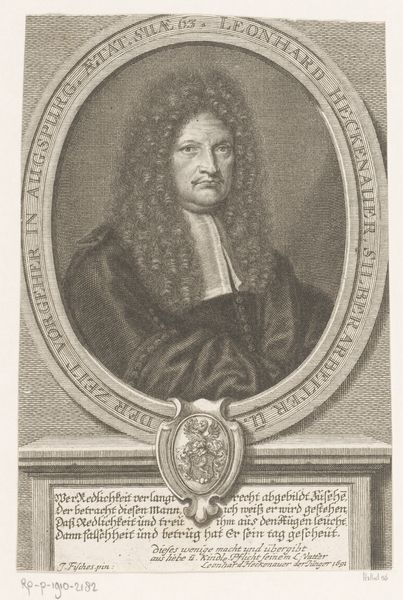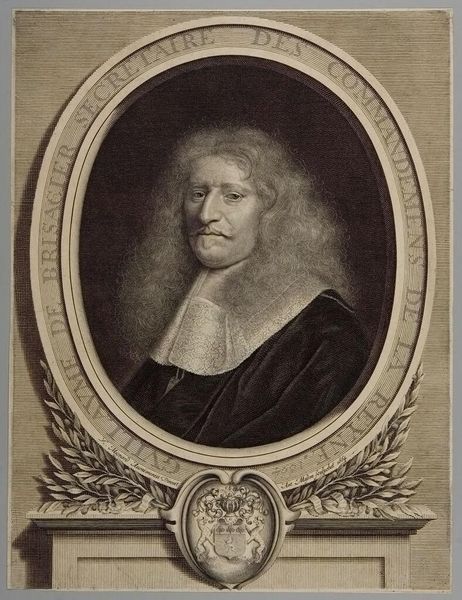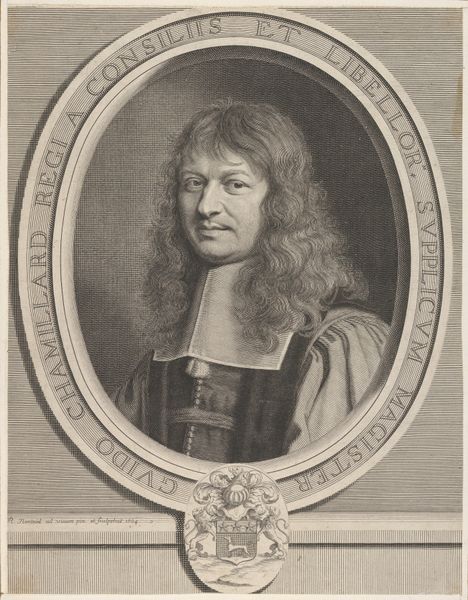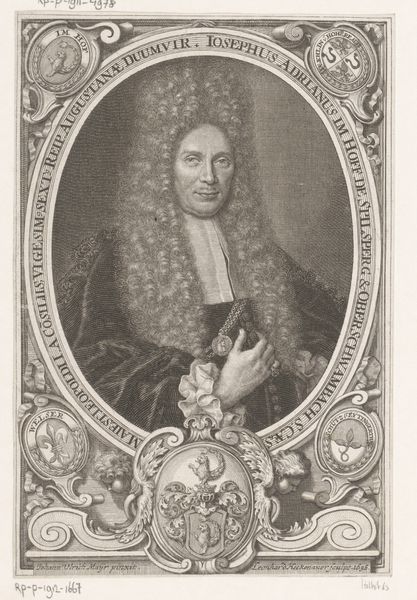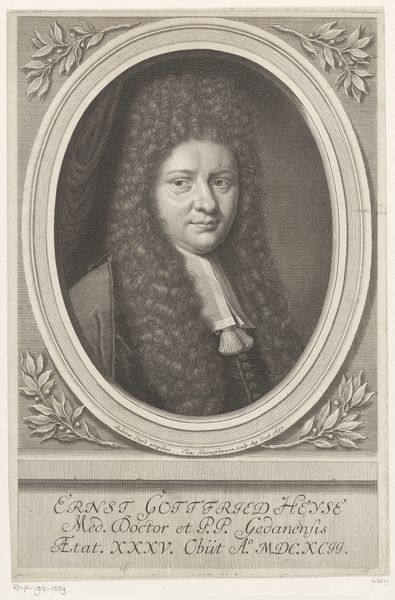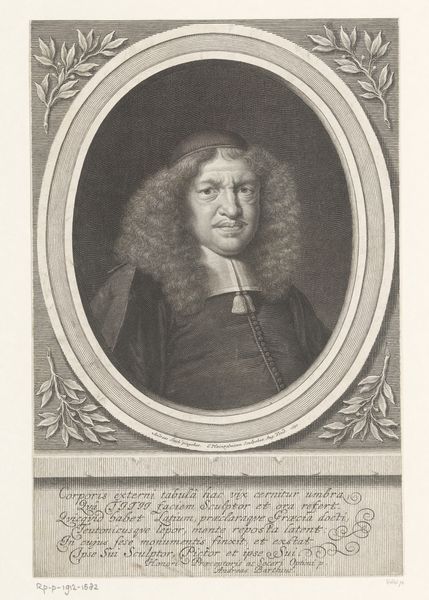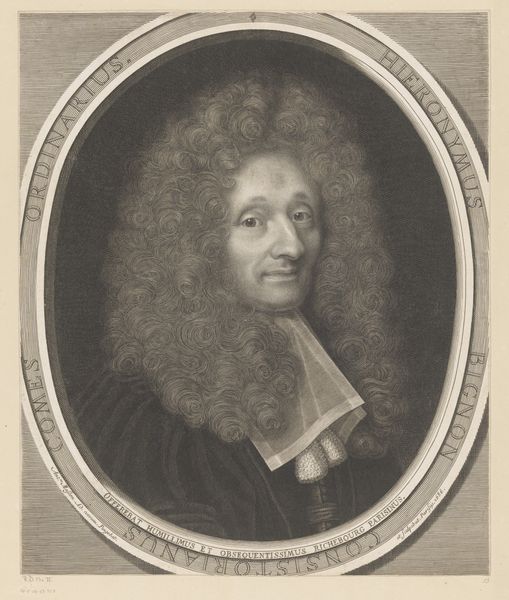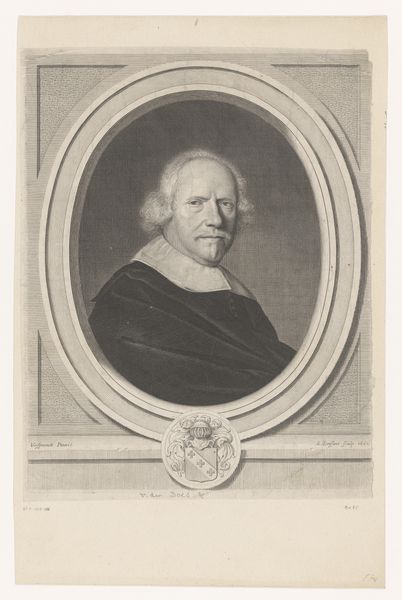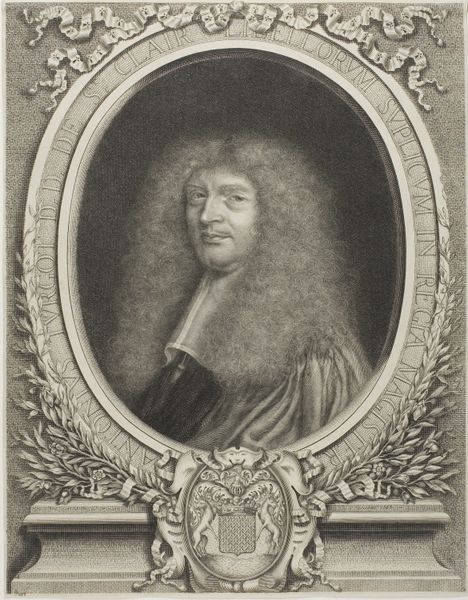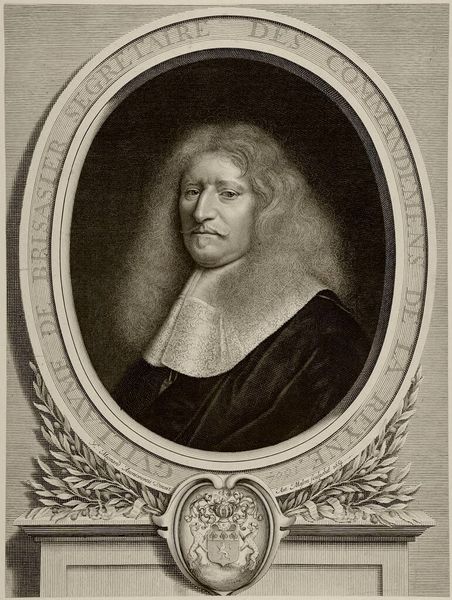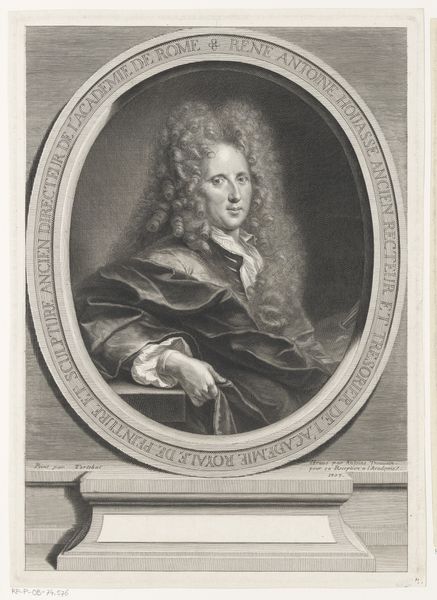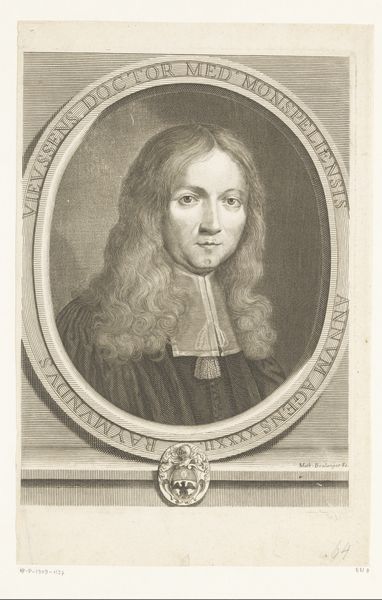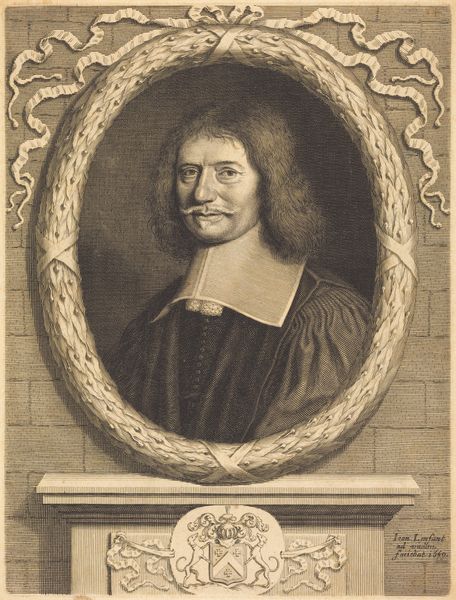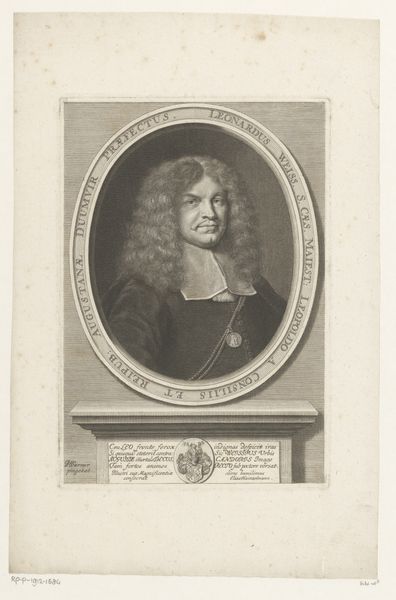
drawing, print, paper, engraving
#
portrait
#
drawing
#
baroque
# print
#
paper
#
history-painting
#
engraving
Dimensions: 347 × 263 mm (image); 350 × 269 mm (plate); 402 × 313 mm (sheet)
Copyright: Public Domain
This engraving of Gillaume de Brisacier was created by Antoine Masson in the 17th century. The laurel wreath, framing the portrait, is a symbol of triumph and immortality, echoing back to ancient Greece where it adorned victors and heroes. Consider how this motif resurfaces through time. We see its earlier origins in Roman imperial imagery, where emperors were depicted wearing laurel crowns, signifying power and divine favor. It’s a visual language that speaks to aspirations of glory and lasting legacy. But the wreath’s significance isn't static. Its periodic re-emergence underscores our collective yearning for recognition and remembrance, a continuous thread woven through the fabric of human history. The wreath embodies a potent psychological symbol, tapping into our deepest desires for honor. It is a powerful force, engaging viewers on a subconscious level across centuries.
Comments
No comments
Be the first to comment and join the conversation on the ultimate creative platform.
